Bosu Ball Squats: Everything You Need to Know
Author:
Unlock your full potential by engaging with our experts and community! Have questions about your fitness journey or looking for expert advice on weightlifting techniques? Don’t hesitate — leave a comment below and Ihor Shymechko will provide a personalized answer and insights to help you reach your goals.
Torokhtiy is reader-supported. Some links are affiliate links, and we may earn a commission at no extra cost to you. See our disclosure page for details.
Bosu balls are becoming a popular fitness accessory. Encouraged by the need to always raise the stakes for better results, fitness enthusiasts and professionals have turned to the bosu ball for several workouts including plank, push-ups, and squats.
In this article, I’ll focus on bosu ball squats. So should you consider adding bosu ball squats to your routine? Well, let’s find out…
Should you do bosu squats: Of course, you should! Bosu balls can be quite helpful with improving your balance, engaging your smaller muscles, and enjoying an intense workout.
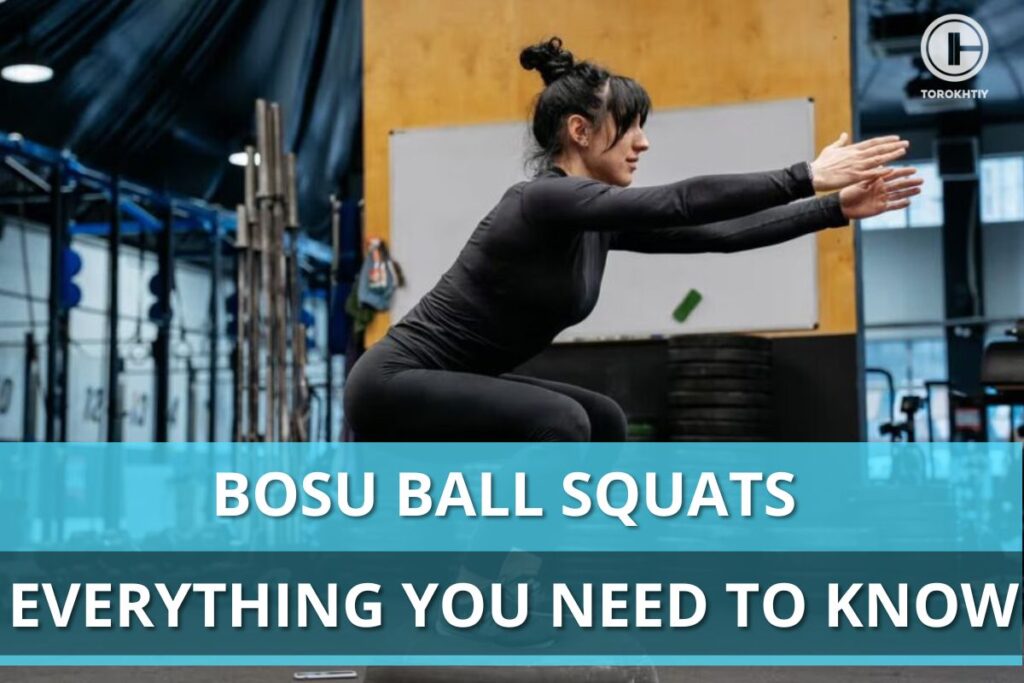
Bosu Ball Squats: The Deep Dive
If you still want to know more, stick around. I’ll explain how to do it, why you should do it, and many more things. So what are some tips to help you nail bosu ball squats? First, what are bosu balls?
Bosu balls, or stability balls, are pillow-like gym equipment that add instability to your workout. They come with one flat side and one round side. Bosu balls can be used for a number of exercises from plank and push-ups to mountain climber and squats. They add an extra layer of difficulty by introducing instability to the move.
1. Tips on How to Do Bosu Ball Squats
To do squats on bosu ball, place the ball on the floor with the flat side facing the ground. Then slowly step onto the round side and find your balance. Once set, do a squat the way you would normally do it. Bend your knees while pushing your hips backward and keeping your core engaged, then push back up.
Here are some tips to help you out, especially if you’re a beginner.
• Get Help
The first and perhaps most important rule is to get help. Whether it’s a coach or a friend who’s good at it, it’s important that you have someone watching you from there. Bosu balls can be quite difficult to master and easy to do wrong by beginners so get help.
• Focus On a Static Object
Bosu balls essentially add instability to your workout. It’s now up to you to find a way to remain stable enough to perform your workout. One clever way to keep your balance intact is to focus on a static object. This focus will trick your body into believing you’re on a stable surface. Of course, it doesn’t take away all the instability, but focus is one great way to fight it.
• Hold On to a Support
If you’re a beginner, please start with baby steps. Nailing that balance can be a problem for you, so start by using supports and then slowly wean yourself off them. This helps you to slowly, but surely improve until you’re good enough to go it alone.
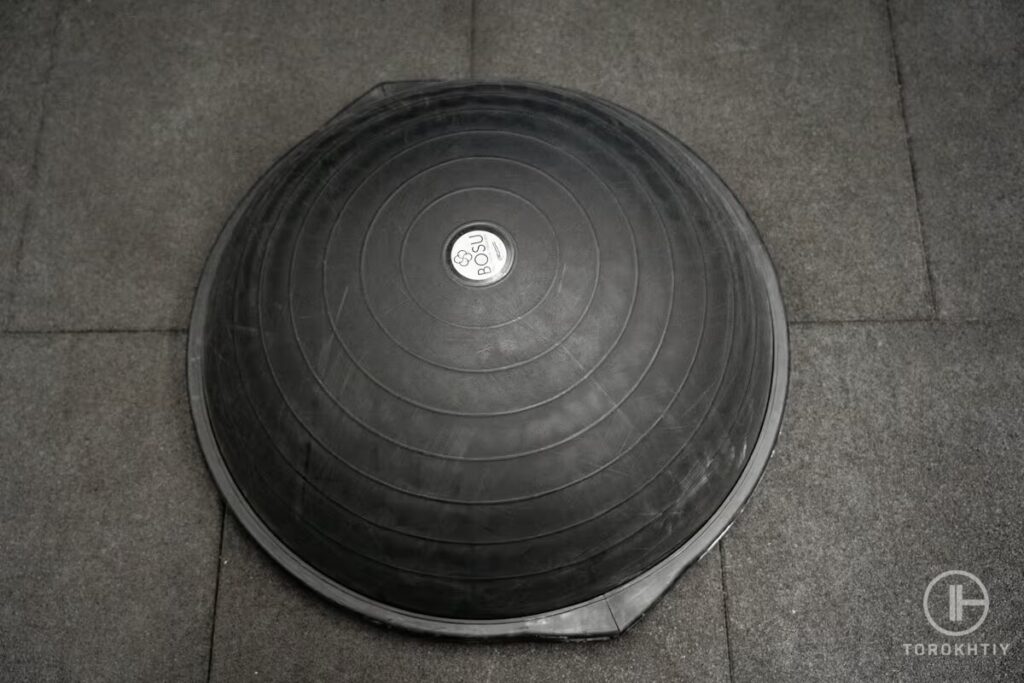
2. Pros of Doing Bosu Ball Squats
Now that you know exactly how to do squats on bosu ball, we can move on to answering the main question. Should you do them? To help answer that, let’s look at some pros…
✅Improves Balance
Workouts like plank, push-ups, and squats all help improve your balance a little bit, but by adding a bosu ball, the stakes are raised. Now you’re performing squats on an unstable surface. This helps train your ability to maintain balance.
✅Good For Rehabilitation
Bosu ball squats are also great if you’re recovering from an injury, especially a leg injury. The ball gives you a soft platform to plant your legs on without suffering so much of an impact. Make sure you’re already good at using the bosu ball or you risk losing your balance and getting injured again.
✅Engage The Core
Bosu balls target your stability, and your core is one of your main stabilizing muscles. So if you do your bosu ball workouts correctly, your core will feel some of that stress.
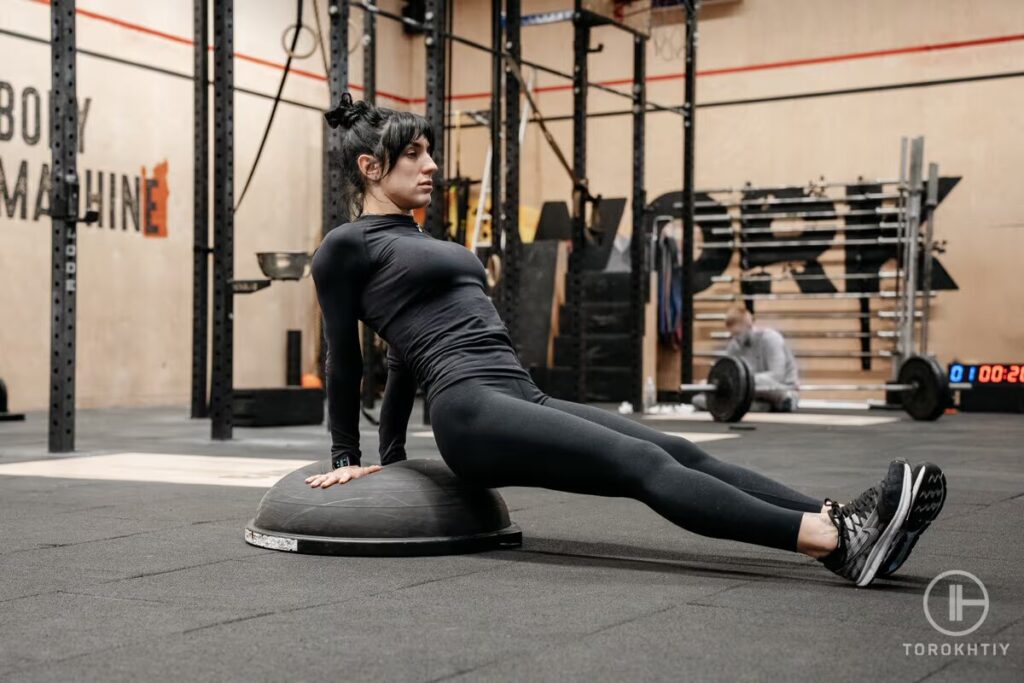
3. Cons of doing bosu ball squats
It wouldn’t be fair if I didn’t point out some cons, so here you go…
❌Difficult to Maintain Proper Form
One of the cardinal parts of getting your workout right is maintaining proper form. Bosu balls, however, are all about instability so this makes it much harder to do.
❌Greater Risk of Injury
If you’re not good at using the bosu ball, you stand the risk of losing your footing and getting injured. A regular squat doesn’t pose so much of a risk because you’re firmly on the ground.
❌Requires High Level of Skill
By now, you should know this. The bosu ball is not for newbies. It requires a high level of skill to successfully navigate or coaching by someone with greater experience.
4. Stability Ball Squats vs Regular Squats
Stability ball squats vs regular squats is becoming a real debate for some people. To me, both of them are totally good for your body. Your choice will depend on your level of skill, your fitness goals, and your personal preference.
If you’re a begginer, you might want to stick with regular squats while a coach teaches you how to use the bosu ball. If you’re all about focusing on keeping good form and getting the most out of your squats, stick to regular squats. If you’d like to improve your balance and give yourself an extra layer of difficulty in your workout, the bosu ball just might be the one for you.
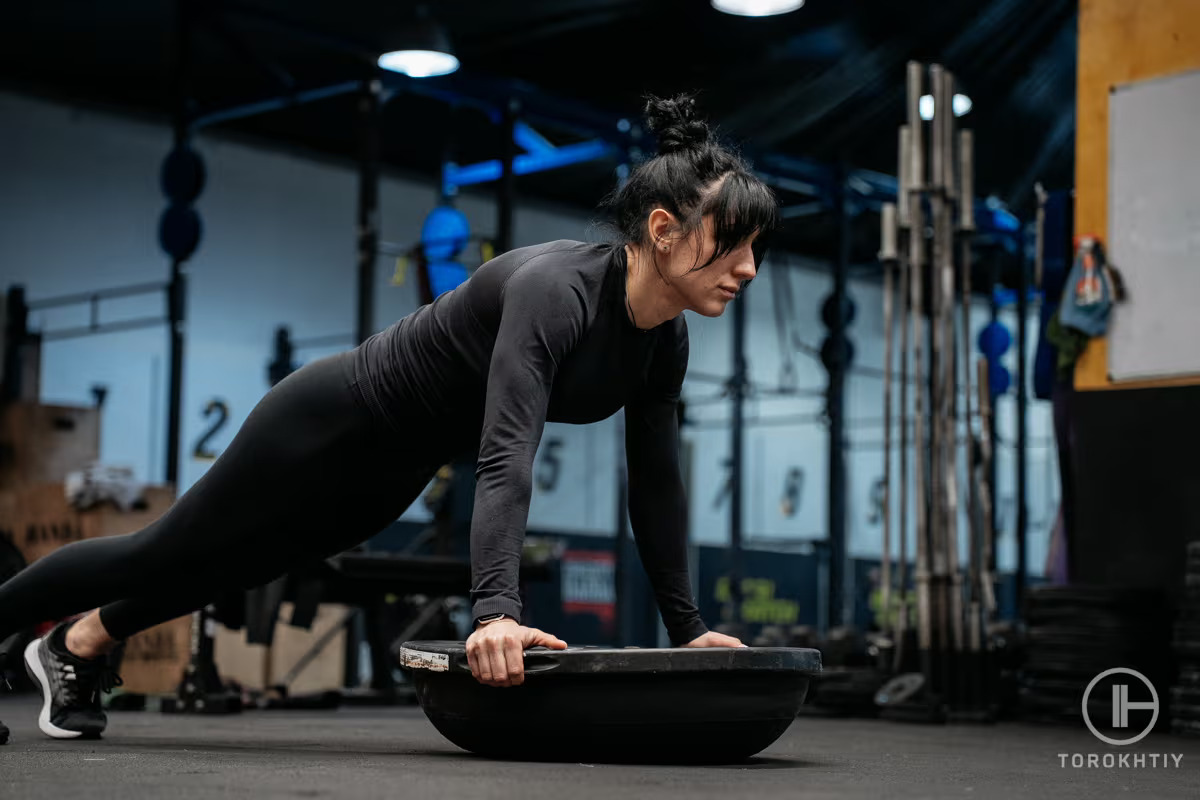
Bosu Ball We Recommend
If you’d like to get a bosu ball, the Yes4All Half Peanut Balance Ball is my favorite one out there. It’s built to last from top quality PVC material, and is coated with antislip to ensure there are no accidents while you workout. It also comes with a pump so you can inflate to use and deflate once done.
You can also use it for more than just squats with extra handles placed on either side. So it’s durable, easy to use, and awesome value for money. If you’re in the market for one, this is it.
FAQ
Are Bosu Ball Squats Effective?
Absolutely, yes, if you can figure out a way to keep your balance without falling off. My advice would be to start under a coach’s tutelage.
Are Bosu Ball Squats Good For Legs?
All squats are good for legs. However, if you’re unable to maintain good form while squatting, you might miss out on some value.
Final Thoughts
Bosu ball squats are becoming popular because they add a new stage of difficulty to your workout. Some people have argued that it takes the focus away from the actual goal of the workout and just teaches balance. I think you can still get the intended value from bosu ball squats, only that it’s harder to find, and that’s the goal of the exercise.
So what do you think? Are bosu balls a good idea or a distraction? Are you looking to add one to your gym? Did I skip anything? Let’s talk in the comments…
Also Read:
- Bosu Ball Ab Workout
- Benefits Of Bosu Ball
- Bosu Ball Leg Exercises
- Medicine Ball Exercises
- Kettlebell Buying Guide
References:
- Training For Skiing in The Offseasons: https://www.bosu.com/blog/training-for-skiing-in-the-offseason
- Balance Training – Where to Start: https://www.corebalancefitness.co.uk/blog/balance-training-where-to-start/
- All photos are made by our Torokhtiy Media Team
Why Trust Us?
With over 20 years in Olympic weightlifting, strength training, nutrition coaching, and general fitness our team does its best to provide the audience with ultimate support and meet the needs and requirements of advanced athletes and professional lifters, as well as people who strive to open new opportunities and develop their physical capabilities with us.
By trusting the recommendations of our certified experts in coaching, nutrition, and sports training programming, as well as scientific consultants, and physiotherapists, we provide you with thorough, well-considered, and scientifically proven content. All the information given in the articles concerning workout programming, separate exercises, and athletic performance, in general, is based on verified data.
The product testing process is described in more detail here.
Author: Ihor Shymechko
Pro Olympic Weightlifter, Coach
Best Results: Snatch – 208 kg,
C&J – 240 kg
Ihor has been a professional weightlifter since 1996, boasting over two decades of competition experience. His notable achievements include clinching the European Championship in 2009 and securing a silver medal in the 105kg division at the Senior World Championships in 2011. Ihor represented his country in the 2008, 2012, and 2016 Summer Olympics. After retiring from competitive weightlifting, he transitioned to coaching, leveraging his vast experience to guide athletes who now compete on both national and international stages.



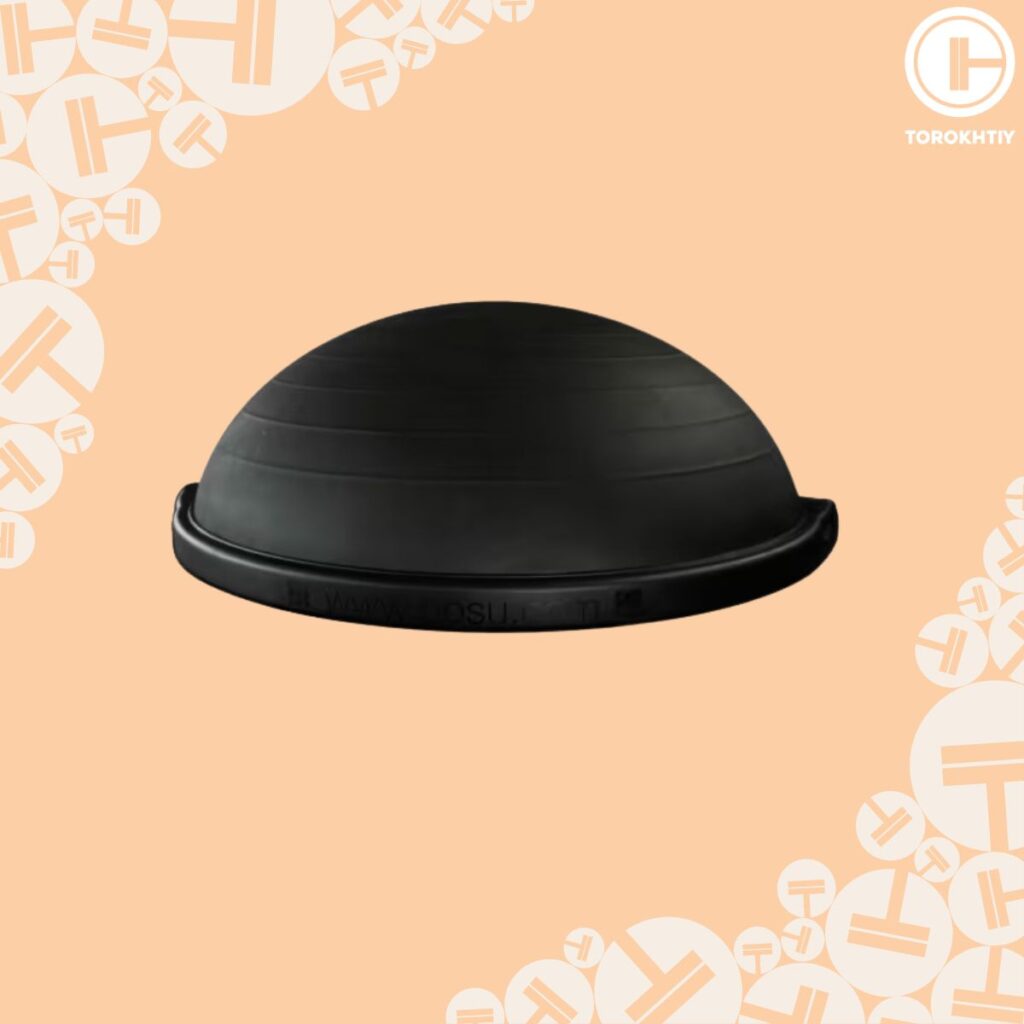
Still have questions after reading our article? Unlock your full potential by engaging with our experts and community! Don’t hesitate — leave a comment below and Ihor Shymechko will provide a personalized answer and insights to help you reach your goals.